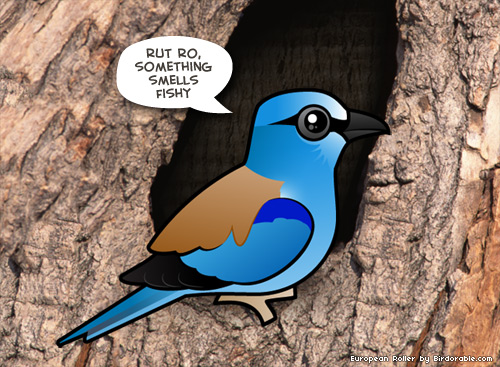Baby European Rollers' unique defense
Spanish researchers have discovered that baby European Rollers have an unconventional method of deterring potential predators. The young birds will "vomit a smelly orange liquid when scared by predators." The act serves two purposes. First, the stinky puke may disgust predators from further harassing or attacking the nestlings. Second, the smell serves as a signal to the parent birds that the nest is in danger. The parent birds approach the nest with extra caution when the babies have vomited. Not exactly cute -- but pretty neat, right? Read more about the discovery here: Bird in the hand is worth... ew, is that vomit?.







Comments
Be the first to comment
Thank you!